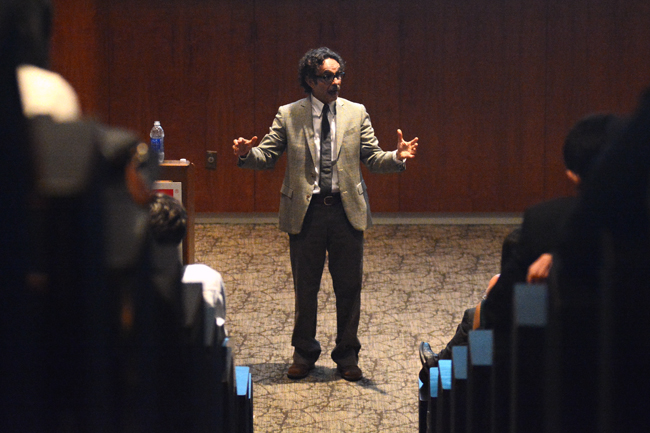Despite having the 14th largest economy in the world, Mexico is still suffering from long-term development issues, according to Mexican politician Gabriel Quadri, a former presidential candidate who spoke at the LBJ School of Public Affairs on Wednesday evening.
Quadri, who spoke for the Asociacion de Empresarios Mexicanos Jovenes Austin, said the GDP per capita is lower in regions of Mexico with larger rural populations.
“Economic development goes hand in hand with urbanization,” Quadri said. “Almost every developed country [has] almost 95 percent of its population in cities. The only way to become a developed country is to urbanize very quickly.”
According to Quadri, Mexican cities have also decreased in density by expanding to the point where many people spend several hours a day commuting to work, placing a drain on the social fabric of Mexico.
“Just imagine the life of these people who are using eight hours per day traveling — they arrive home at 11 p.m. and they have to get up at 4 a.m.,” Quadri said. “What kind of life is that? There’s no familial life. There’s no civic life. There’s no social life. Everyone is stressed.”
Quadri said Mexico’s sprawling cities also affect the increased consumption of gasoline. According to Quadri, Mexico has some of the lowest gas prices in the world, which, until
recently, were subsidized by the government.
“In 2012, the Mexican government used a slightly less budget for subsidizing gasoline than for public education,” Quadri said. “This is something obscene.”
Paloma De Leon Elias, director of public relations for the association, said that by being from Reynosa, Mexico, a border city close to McAllen, she has noticed what a problem the size of Mexican cities has become.
“I couldn’t agree more with Dr. Quadri when he mentioned how cities are growing at an unsustainable rate,” De Leon Elias said. “I believe it’s really important for us to [be aware] and to take different paths to develop different cities, being that Mexico has a lot of large cities.”
Another sign of unsustainable growth in Mexico — particularly in the gulf — is the area’s depleting fish population, which is not being protected by law enforcement, according to Quadri.
“I thought what was most appalling was how they have so many resources in the ocean and no one to patrol it,” said Anthony Guerra, a government and journalism senior.




















